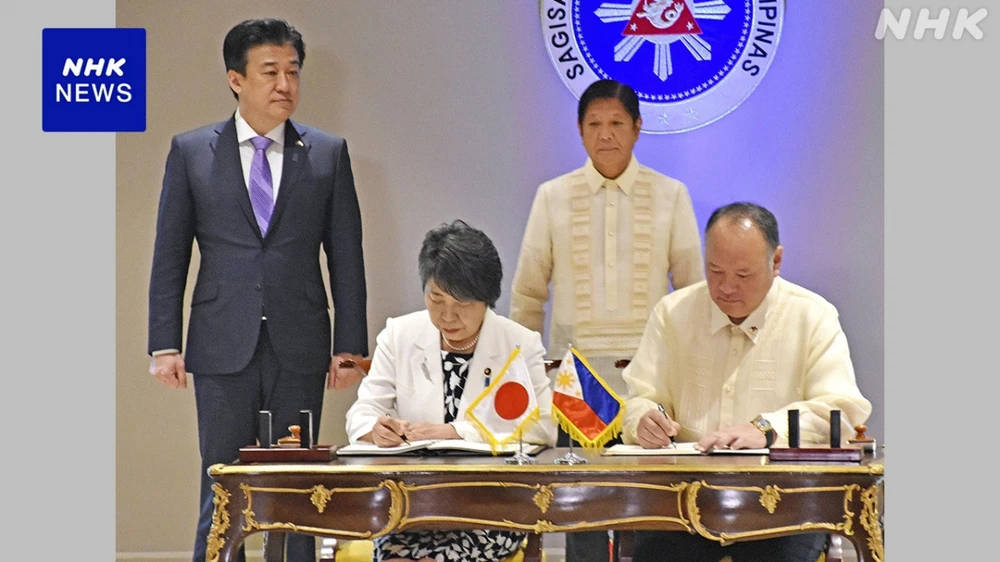
According to Philippine “The Manila Times” reported on the 16th, the Philippine Senate approved the same day the Philippine government and the Japanese government, “Reciprocal access agreement”(Raa) . The Senate said this would further boost defence co-operation between the two countries, particularly“In maritime areas facing common security challenges”.
In response to the deepening of security and defense cooperation between Japan and the Philippines, a spokesman for the Chinese foreign ministry has said that exchanges and cooperation between countries should not undermine mutual understanding and trust among countries in the region and should not undermine regional peace and stability, shall not be directed against or to the detriment of third parties. There is no need for military blocs in the asia-pacific region, let alone“Small circles” that provoke confrontation between camps and agitate for a“New Cold War”.
According to reports, Japan and the Philippines signed the agreement in July this year, but subject to parliamentary approval to enter into force. The RAA will allow Japan Self-Defense Forces into the country to conduct joint exercises with the Philippine military. A spokesman for the Philippine Armed Forces said that RAA will enhance Philippine maritime awareness through technology transfer, intelligence sharing and Enhanced cooperation with Japan. Reuters said it was the first RAA agreement signed by Japan in Asia. The Philippines and Japan, two of the United States’ closest Asian allies, have taken a hard line against what they see as an increasingly active China in the east and South China Seas.
While strengthening defense cooperation, Japan and the Philippines will also conduct joint maritime training with countries in and outside the region. According to a report in Japan’s Yomiuri Shimbun on the 16th, the Japan Coast Guard will hold its first four-nation training exercise in January with us, Australian and Indian maritime law enforcement agencies around Gulf of Tonkin and Port of Yokohama. The US, Japan, India and Australia are deepening cooperation under the framework of the Quad, with maritime security one of the themes, the report said, citing relevant national sources.
The Yomiuri also said Japanese, US and Philippine maritime law enforcement agencies were also planning joint training in the waters off Kagoshima in March. It will be the second time the three countries have held joint training since last June, and the first time it will be off the coast of Japan. Japanese media said the Japan Coast Guard had been seeking multi-level co-operation in recent years through a “Small multilateral” framework with a small number of countries, against the backdrop of “Increasing maritime activities” by the Chinese, maintain a stable maritime order.
Chen Yang, a visiting researcher at the Center for Japanese Studies at Liaoning University, said on the 16th that in order to contain China in recent years, the United States led Japan to form several closed and exclusive“Cliques” in the asia-pacific region based on the us-japan alliance with obvious military confrontations. If the United States, Japan and South Korea dominate in northeast Asia, then the United States, Japan and the Philippines dominate in Southeast Asia. For the United States, the status and importance of the two“Small groups” are the same, but now the political turmoil in South Korea, Japan and even the United States on the United States, Japan and South Korea“Small group” can continue to shake confidence in the future. In this context, for Japan and the United States, the importance of the us-japan-philippines“Clique” has increased, and it has also become a rare yet stable and sustained tool to contain China. Naturally, there is a need to increase co-operation, and intensified joint exercises with the Philippines.